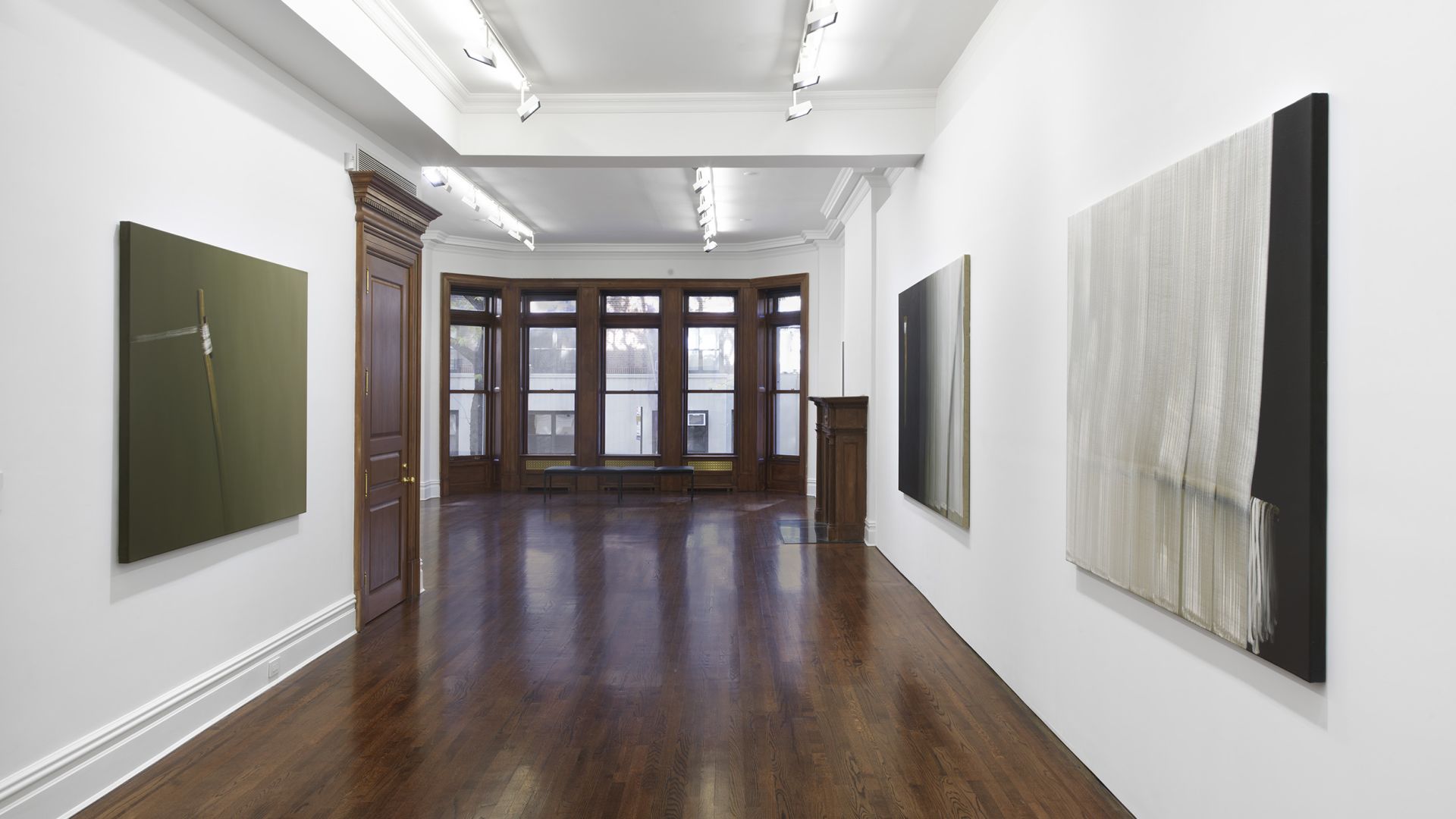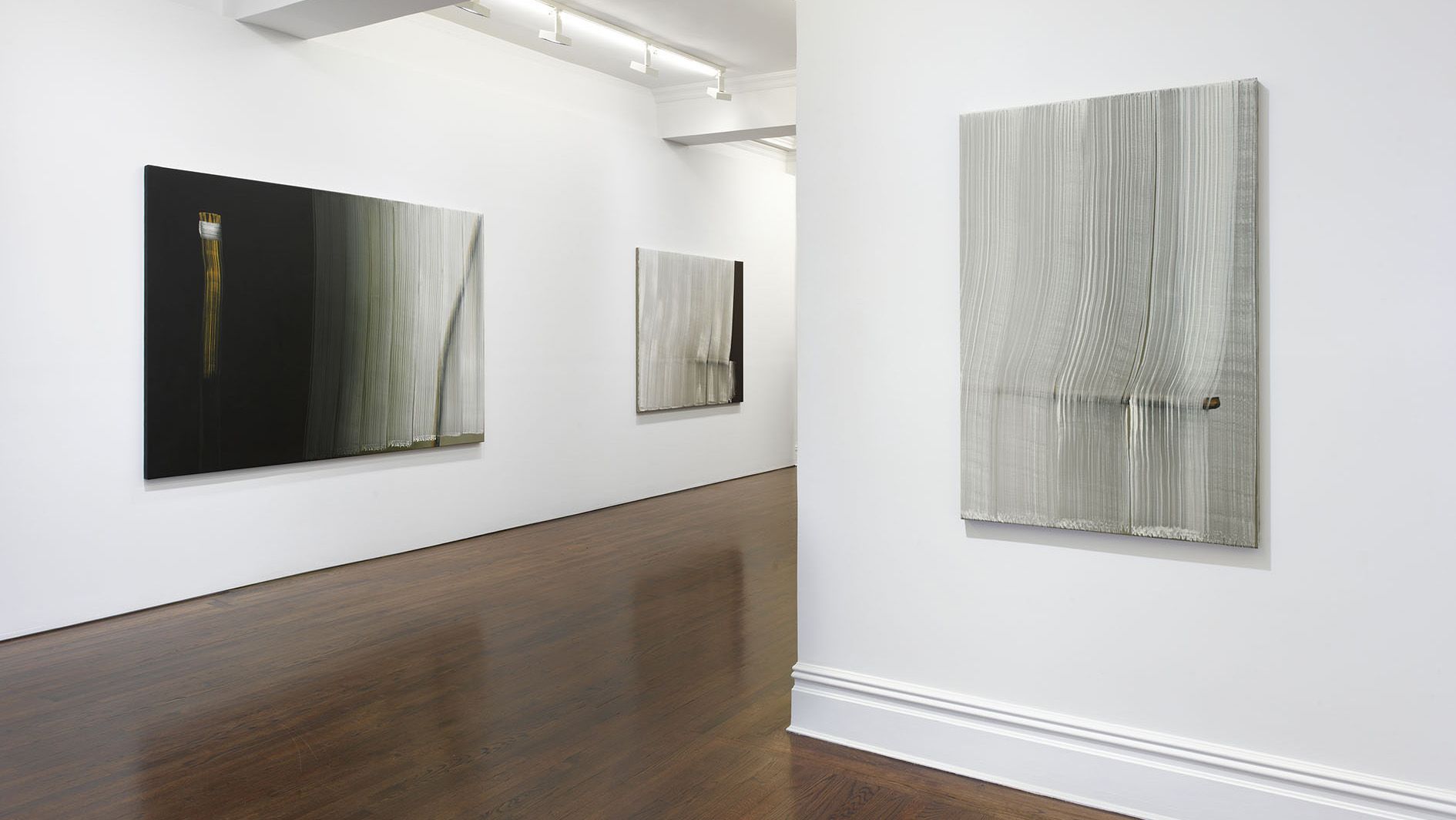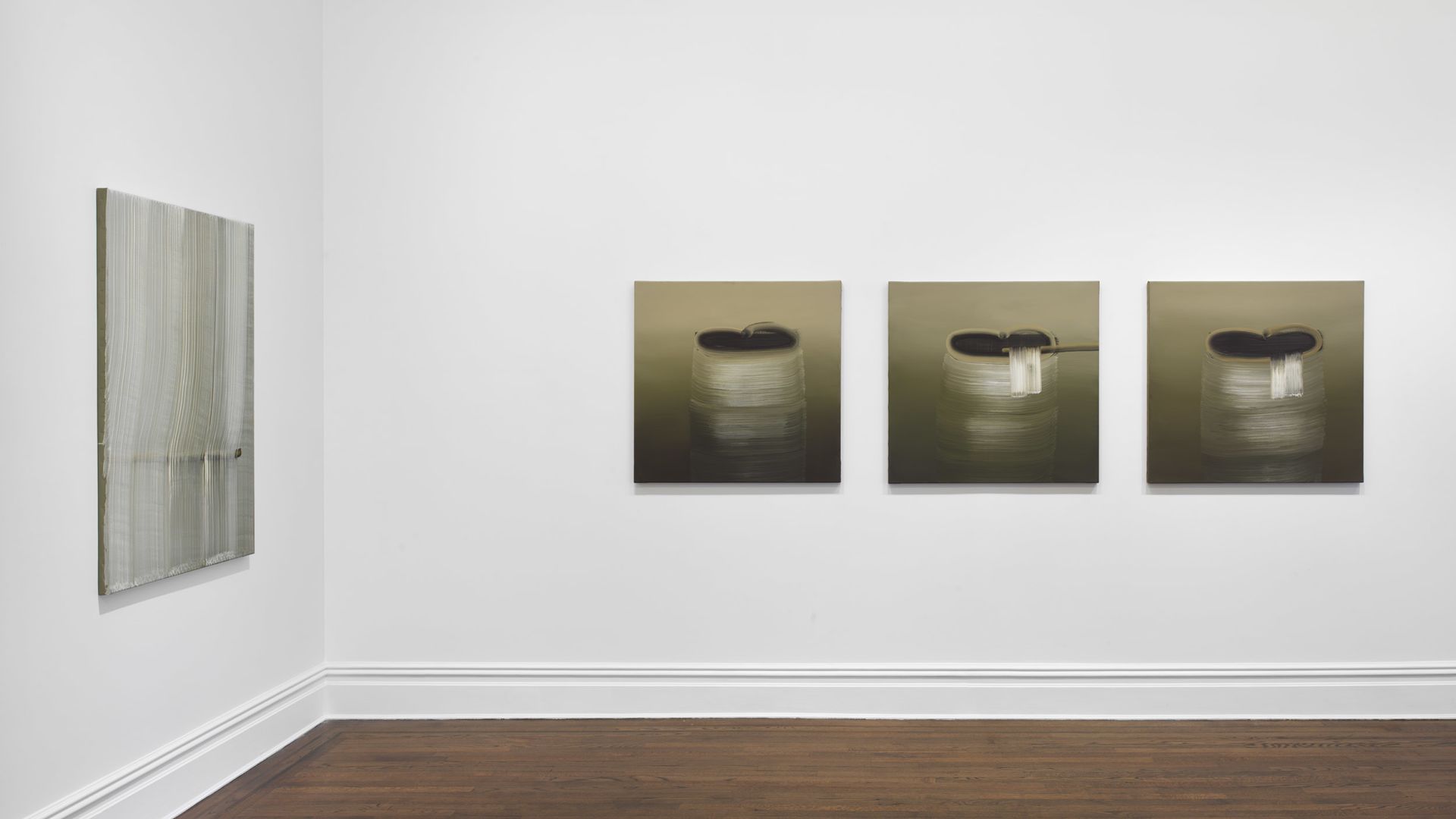On the studio floor lies a canvas, with wooden blocks on either side balancing a plank. Equipped with a wide brush, the artist moves intently along this narrow bridge as she performs a dance she describes as “thinking with her hands.”

Hyun-Sook Song
10 Brushstrokes, 2024
Tempera on canvas
160 x 240 cm | 63 x 94 1/2 inches
























































































































